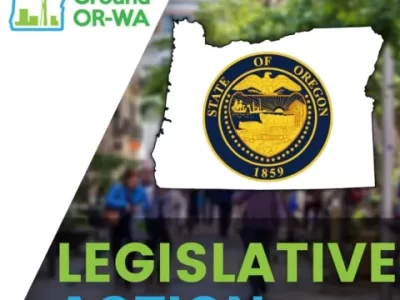How to pay for additional public spending on compensation for losses that individuals and companies incur from shutdowns during the pandemic? If we want to raise revenue from those who benefit we should turn attention to a tax on land values.
Compensating for Lost Revenue During COVID 19
by Fred Foldvary and Nicolaus Tideman
April 7, 2020
Governments owe compensation for the losses that individuals and companies incur from the temporary shutdowns that they, these governments, have imposed in response to the coronavirus pandemic. The compensation they owe must be on-going compensation rather than the one-time payments that were recently enacted for individuals. While the shutdowns have been ordered primarily by state governments, it is appropriate for the preponderance of the compensation to be paid by the Federal Government, because the whole nation benefits from the effort to mitigate the spread of Covid-19 throughout the country.
The compensation that is due from the Federal Government could be provided through the IRS. An individual or an authorized representative of a business or company would apply to the IRS for a monthly grant for 80 percent of its lost net income. The 20% not compensated would provide an incentive for an unemployed worker to apply for a job in those industries and businesses still operating, or for a business or company to switch to producing products (such as medical masks) in high demand.
A business or company that closed temporarily would have a choice of laying off workers or keeping them employed. While other costs would be reimbursed only 80%, a business or company that kept its workers would be 90% reimbursed for its labor costs, because it is better for the economy as well as for the businesses and companies themselves that the knowledge and productive interaction specific to their business or industry be maintained.
The US should also decide explicitly how to pay for this additional public spending. If we ignore the question and let deficits balloon, the default answer is that the spending will be paid for by a combination of debt passed on to future generations and inflation that depletes the value of everyone’s cash savings, while reducing the real cost of paying debts and thereby providing unjustified benefits to anyone who owes money. We ought instead to seek a justifiable allocation of costs.
Some passing on of costs to future generations can be justified by the idea that it is reasonable to spread over several generations a cost that randomly strikes one generation. Allowing the cost to be paid by inflation is not justified. To avoid this, we must levy taxes to pay for that part of the cost that is not to be passed on to future generations. What kind of taxes should we levy?
To some extent, because we all would benefit, a general increase in income taxes can be justified. But if we want to assign taxes to those who benefit, we should give special attention to a tax on land values. Overcoming COVID-19 provides a huge boost in land values. And a properly administered tax on land values, unlike nearly any other source of public revenue, does not undermine incentives to be productive. Therefore, it is both efficient and just for all levels of government to finance through taxes on land values a significant part of the compensation for the unequal harms of the nationwide shut-down. After the controls are lifted, the economic recovery will be stronger and quicker if businesses and companies are not burdened with added taxes on investments, trade, and labor.



